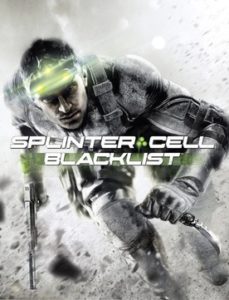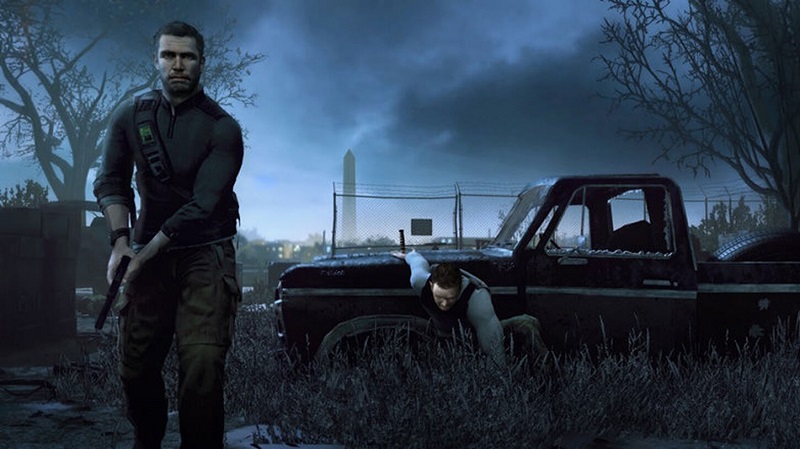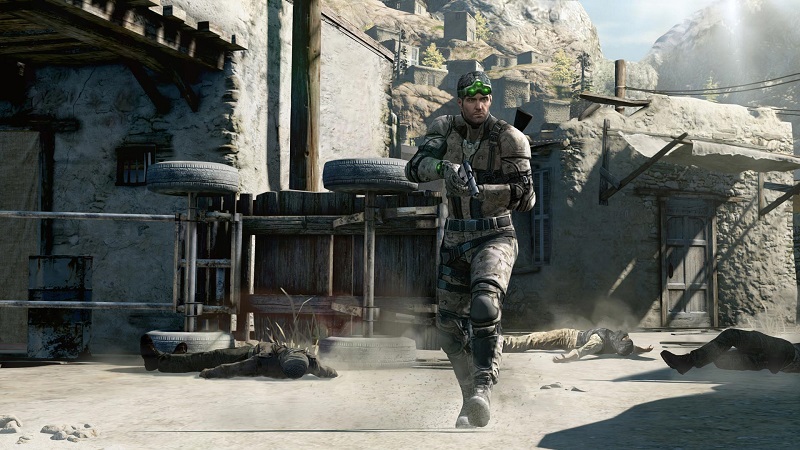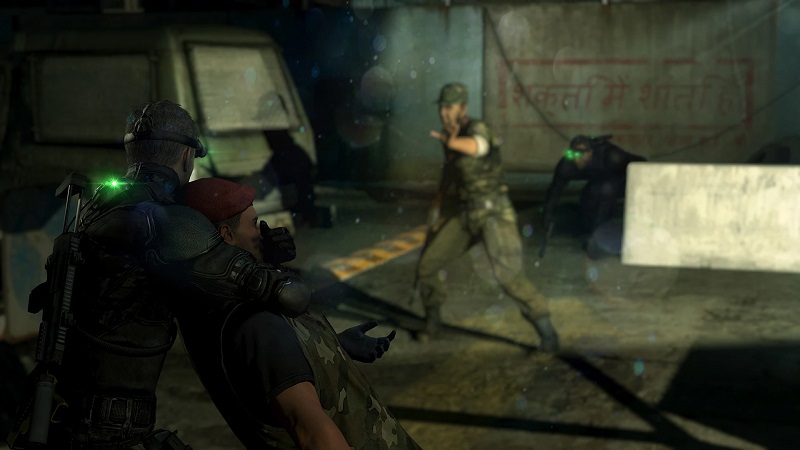2013 was a notable year in gaming for quite a number of reasons. It saw the announcement and launch of both the PlayStation 4 and Xbox One consoles following the unusually long seventh console generation. It was the last year the industry experimented with different game award shows before the consistent (but still terrible), “The Game Awards” began the following year. It also saw a number of major releases including games that came to define the decade.
The Tomb Raider reboot, BioShock Infinite, Metro: Last Light, The Last of Us, Rayman Legends, Grand Theft Auto V, Assassin’s Creed IV: Black Flag, Pikmin 3 and Super Mario 3D World were all released in 2013. These were all commercially and critically successful and have all seen subsequent re-releases. Grand Theft Auto V has been ported to virtually everything since and gone on to be one of the most successful games ever made. The Last of Us got a remaster the following year and a remake within the decade. Assassin’s Creed IV: Black Flag is still one of the more fondly remembered titles in the series and apparently is getting a remake too. This doesn’t come close to mentioning all the notable games that came out in 2013 but it gives a good idea how big the year was.
On the other hand, there were also a few disappointments. Gears of War: Judgement released earlier in the year to a fairly mediocre reception and sales despite being a decent game. There was also Splinter Cell: Blacklist which had a better reception but as of writing, has been the last release in the Splinter Cell series. Blacklist followed the polarising Splinter Cell: Conviction from 2010 — a game that departed significantly from its predecessors. It turned off many fans of the series while bringing few new players — if any. Blacklist tried to tread the fine line of retaining some of the changes made in Conviction while restoring some of what made the series successful. It had other problems beyond this misguided attempt to please completely different audiences which will be discussed below.

Although as of writing, there hasn’t been a Splinter Cell game for more than ten years; the series isn’t completely dead. The protagonist Sam Fisher has made appearances in other Ubisoft games; most notably the more recent Ghost Recon games. I actually played Ghost Recon: Wildlands just long enough to meet Sam for the special mission he featured in. There is also a remake of the first game in development but there isn’t much solid information beyond its existence yet.
The decline of what had been a successful series can at least partially be attributed to factors beyond poor decisions at Ubisoft. The series was born into the “War on Terror” in 2002 and the storyline of each game definitely benefited from this real-world background — though they were never dependent on it. By 2008, the United States hadn’t stopped its aggressive foreign policy (and still hasn’t), but it was far less popular domestically than it had been during the early Bush years. This alone left the series in a bit of a lurch but it certainly wasn’t enough to end it entirely.
The main reason for the decline is still on Ubisoft. By 2008, the five mainline games and one spinoff for the Sony PlayStation Portable had sold 19 million units which works out to over three million units per game and closer to four on the assumption the poorly received PSP release didn’t sell very well. The two releases that followed sold about two million each which represents a substantial drop in sales. This means that the series declined after Ubisoft dumbed down the gameplay to “expand the audience.” It can’t be blamed on the stealth genre being unpopular because both these games were more action orientated and stealth gameplay had seen something of a resurgence with Deus Ex: Human Revolution in 2011 and Dishonored in 2012. There was also an increasing trend to include stealth-based gameplay in the genre amalgamations Ubisoft arguably popularised. Splinter Cell was unlikely ever to be the golden goose the Assassin’s Creed and Far Cry series were but it still could have continued to be a successful franchise.

Tom Clancy’s Splinter Cell: Conviction
My own interest in the series came comparatively late and I played through the games in an odd order. I began with Splinter Cell: Double Agent on Xbox 360 and then played Splinter Cell: Conviction which I did enjoy but only as an action game. After this, I played the original trilogy in order and finished with what most people consider to be the peak of the series: Splinter Cell: Chaos Theory. Interestingly, Double Agent on the original Xbox is significantly different from the “next-gen” counterpart so I later went back and played that too. There are also a number of differences with the earlier games on other consoles including extra or redesigned levels but the games are still substantially the same. I would share the general consensus that Chaos Theory is the best which was reinforced after replaying it on PC last year.
So by the time Blacklist was announced, I was already quite invested in the series and it initially promised to be a return to form. A promise that was soon broken. The glaring problem was the absence of Michael Ironside as the voice of Sam Fisher. Ironside’s distinctive gruff and gravelly voice had become inseparable from the character. He was already well-known in military roles and most famously as Jester in Top Gun. Instead, the game was something of a soft-reboot with much younger actor Eric Johnson taking over as Fisher for both voice and motion capture. Why he couldn’t do just the latter was not adequately explained and I still remember one of the developers ineptly trying to explain this decision away on a message board when the game was first revealed.
And the more that was revealed about the game, the less this decision made sense. It continued after the events of the last game and Sam Fisher was already in his forties when the series began. So in Blacklist we had the absurdity of a man getting close to sixty who sounded like he was twenty five. It didn’t work well and I could never get used to his voice when I finally came to play the game. It wouldn’t have necessarily been a deal-breaker if they’d decided to simply make a new character for Johnson and have the aging Fisher retire or die in action to pass on the torch. But this was not to be and I would say did impact the game’s reception.

Tom Clancy’s Splinter Cell: Blacklist
The change of voice actor could still have been overlooked if the game had been better but it was still a weak entry when compared to the earlier games. It is worth stopping to emphasise that neither Conviction or Blacklist were mechanically bad games. The former simply played more like an adaptation of the 24 television series than a stealth game. The controls were intuitive and there was some clever design. Blacklist reintroduced some of the stealth mechanics from the original series while still offering alternative playstyles. Anyone can enjoy these games on their own but players looking for the pure stealth gameplay of the original games were always going to be disappointed.
A good example is the decision to retain the “Mark & Execute” mechanic introduced in Conviction. This allowed players to mark two or more enemies or objects and then press a single button to see Sam automatically shoot each one in order. This made the game’s difficulty trivial unless the player chose the highest difficulty where it was disabled. It was also very easy to stealthily take down enemies as their paths were predictable and there was much less room for error than found in the previous games.
The original games weren’t perfect of course. Particularly in the first game, it was often far too easy to mess up a stealthy take down and the mechanics certainly took some getting used to. The games also had some moments where stealth was not an option as part of story progression. However, the games were still far more focused on stealth mechanics and it was always the more rewarding way to approach each mission.

Tom Clancy’s Splinter Cell: Blacklist
Blacklist encourages three different play styles called ‘Ghost’, ‘Panther’ and ‘Assault’. The former being closest to the design of the series and the latter catering to those looking for an action game experience. The player is rewarded based on which style they played at the end of each mission which is tied to a progression system. No matter which style you chose, the game was easy. The last time I played it some years ago, I set the game to the highest difficulty called ‘Perfectionist’ and also went for a ‘No Kill’ run. The game was still easier than the original game on the lowest difficulty setting and this is not hyperbole.
It was possible to simply walk through many areas without worrying about enemies at all. I remember laughing while quickly moving through the first missions almost unhindered. It doesn’t stay that easy but it still wasn’t at any point a challenging experience. I noticed as I played that the game missions were often designed like long corridors only disguised as a market, mill or military base. They weren’t all like this but were certainly more linear than earlier games where you had more options for how to proceed and exploration was rewarded.
The bank mission in Chaos Theory for example really felt like a bank. If you built a replica of the place in the real world, it could certainly operate as a bank. Ditto for the embassy mission later on. This also meant there was a lot of exploring to do and different ways to go about the mission. All the games have walls or boundaries that remind the player it is a game but none so much as the last two entries in the series. I looked at some gameplay from Blacklist (as I don’t own a copy anymore) and while there are missions like the Private Estate that are more open, the game is certainly much more linear than the original trilogy. Even when it is not, it is always obvious where you need to go and what you need to do.

Tom Clancy’s Splinter Cell: Chaos Theory
There are many people who enjoyed the game and I did have fun with it but it could have been a classic if the developers had focused on the series strengths. As a reminder, the attempt to bring new players by simplifying or removing mechanics and changing the general direction of the series resulted in lower sales. The series wasn’t floundering before Conviction but after and the sales for Blacklist probably suffered because of this despite a partially returning to what the series was.
If the remake of the original game is ever released, I don’t expect Ubisoft will have learned any lessons. I expect they’ll include more of what turned long-time fans off and not less. I predict they’ll use the Assassin’s Creed/Far Cry design elements they’ve been forcing into their other games no matter how irrelevant. As a positive, this will likely mean the game world is more open at least. I’d like to be wrong but I just don’t think publishers like Ubisoft have what it takes to make the games they used to. The Splinter Cell series is just one of many franchises that demonstrate this as is the vapourware sequel to Beyond Good & Evil.
